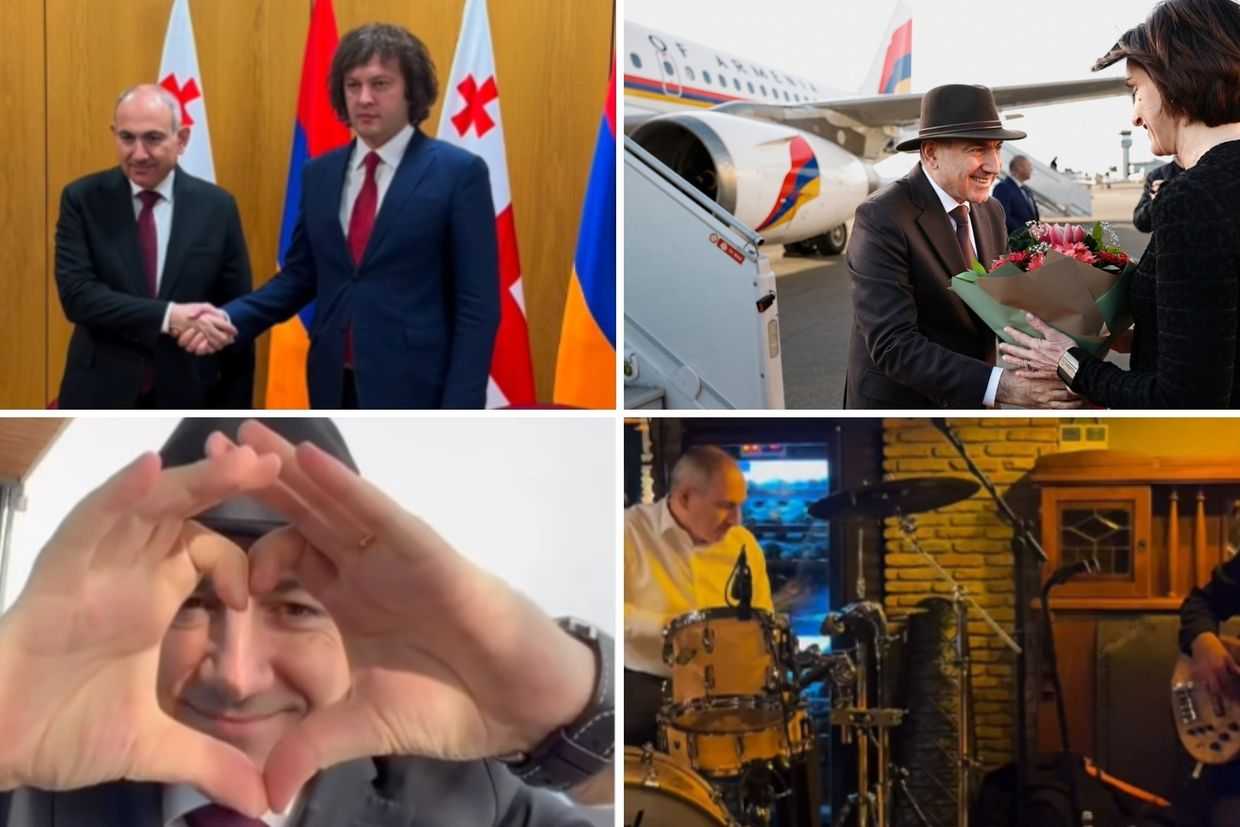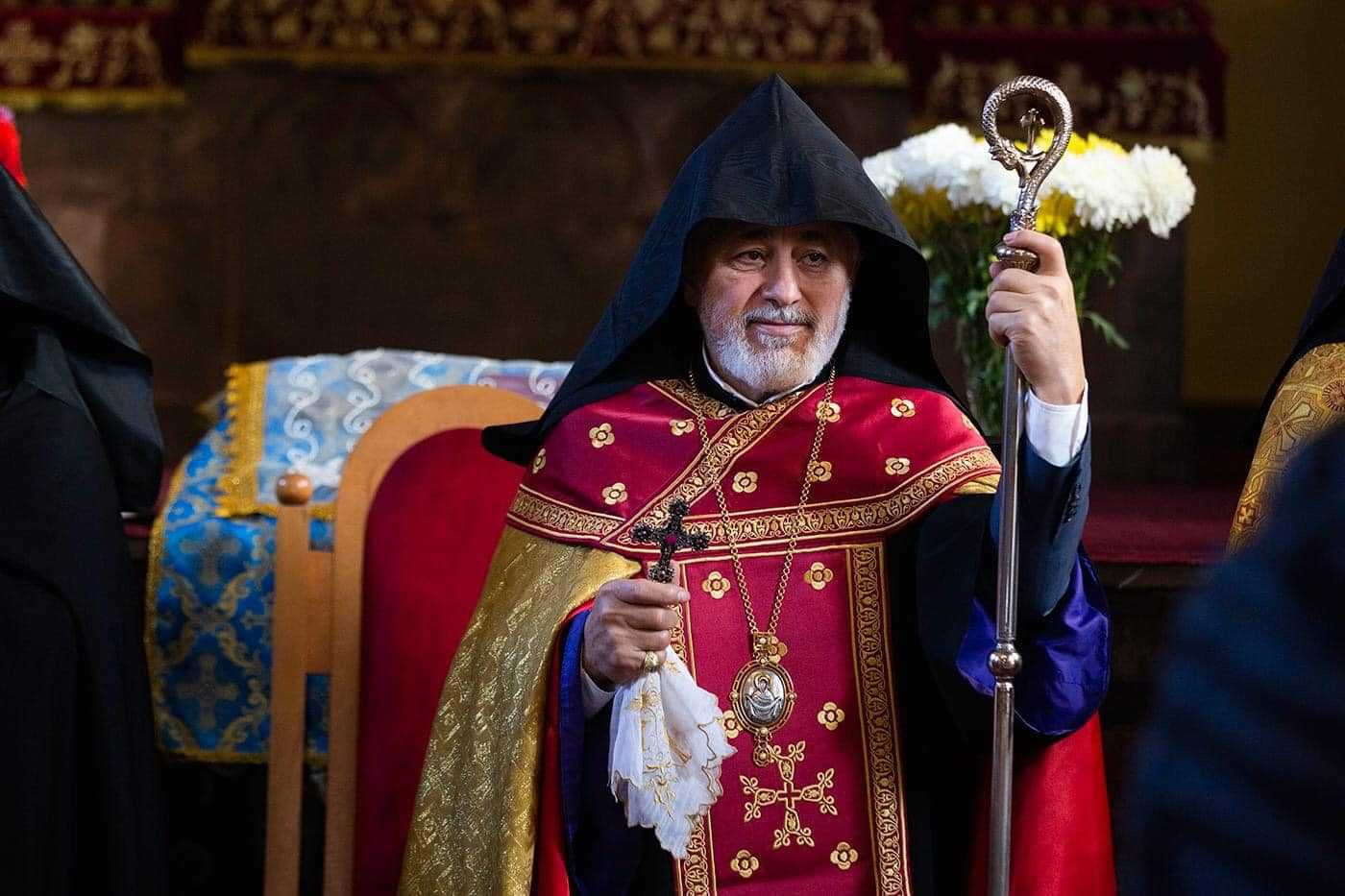
Russian President Vladimir Putin has visited Baku, with the two countries signing a number of trade and cooperation agreements.
Putin began his two-day visit to Azerbaijan on Sunday night, and was reported to have stayed the night at President Ilham Aliyev’s residence in Zagulba, Baku.
Putin’s delegation included most of his cabinet.
During the visit, Putin and Aliyev discussed economic cooperation between their countries and ongoing peace talks between Azerbaijan and Armenia.
Azertajc, a pro-government Azerbaijani news agency, reported that the two presidents also signed numerous documents covering Russian investments in Azerbaijan, ecological cooperation, natural resources, and food safety.
Aleksei Miller, chair of Russia’s state energy corporation Gazprom, told media that his corporation signed an expanded cooperation agreement with Azerbaijan’s SOCAR during the visit.
The two countries also agreed to build tankers to transport petroleum products. Transmashholding, a US-sanctioned Russian locomotives manufacturer, was announced to have signed a contract to manufacture cars for Baku’s metro lines.
Official readouts of the meetings between Aliyev and Putin cited Putin praising the development of economic and trade relations between the two countries, noting that they had surpassed $4 billion in annual trade. He added that there was potential for future cooperation in industry, transportations, logistics, and light industry.
‘More than four billion dollars of direct investment in the Azerbaijani economy is also a positive indicator. There are more than 1,270 entities with Russian capital are operating in Azerbaijan, and this number is certainly not the limit’, he added.
Russian state news agency Tass later quoted Kirill Dmitriev, the head of the Russian Direct Investment Fund, as stating that trade turnover between Russia and Azerbaijan had reached $5 billion, having grown by 20% last year. He also noted that Russia has invested more than $10 billion in Azerbaijan ‘recently’.
Armenia–Azerbaijan peace talks
Despite his high-profile visit to the South Caucasus — his first in years — Putin made scant references to the Azerbaijan–Armenia conflict in his joint public statements with Aliyev.
After meetings with Aliyev, Putin stated that Russia would continue to make ‘utmost efforts’ towards normalisation of the two countries’ relations and the conclusion of a peace treaty, and added that he would contact Armenian Prime Minister Nikol Pashinyan to ‘inform him about the results of our negotiations’.
While official statements did not detail what the two presidents discussed regarding the conflict, Russian Foreign Minister Sergei Lavrov, who was also in Baku, accused Armenia of ‘sabotaging’ agreements to open transit links through its southern Syunik province. He was likely referring to Armenia’s opposition to the opening of the ‘Zangezur corridor’, an Azerbaijani proposal to establish a corridor connecting mainland Azerbaijan to its exclave of Nakhchivan through Armenian territory.
In early August, Azerbaijan agreed to withdraw its demands for the corridor from a peace agreement with Armenia.
Rauf Mirgadirov, an Azerbaijani columnist and journalist, believes that Russia is trying to ‘return’ the peace talks to their previous state, and to reaffirm its role as a mediator between Armenia and Azerbaijan.
He pointed to Putin’s remarks about opening transit links and to Lavrov’s statements about Armenia ‘sabotaging’ previous agreements.
Azerbaijan’s Foreign Minister Jeyhun Bayramov told Izvestiya on Monday that Azerbaijan was open to Moscow’s mediation, but that Armenia was opposed to it.
Lavrov’s comments in Baku sparked controversy in Armenia, whose Foreign Ministry called ‘into question the constructive engagement of Russia’ in the Armenia–Azerbaijan normalisation process.
Armenia also pointed to its ‘Crossroads of Peace’, a proposal — a regional transport proposal that would connect Turkey, Azerbaijan, Iran, and Georgia through Armenia, believed to be Armenia’s counterproposal to the ‘Zangezur corridor’.
The ministry said that the ‘Crossroads of Peace’ was ‘presented several times’ to Russia, stressing that ‘opening regional communications within the project is possible literally at any moment’.
‘The “Crossroads of Peace” project received a positive response from a number of international partners, and we call on our colleagues from the Foreign Ministry of Russia to refrain from sabotaging through biassed statements [both] the project and the efforts to achieve peace in the South Caucasus.’









